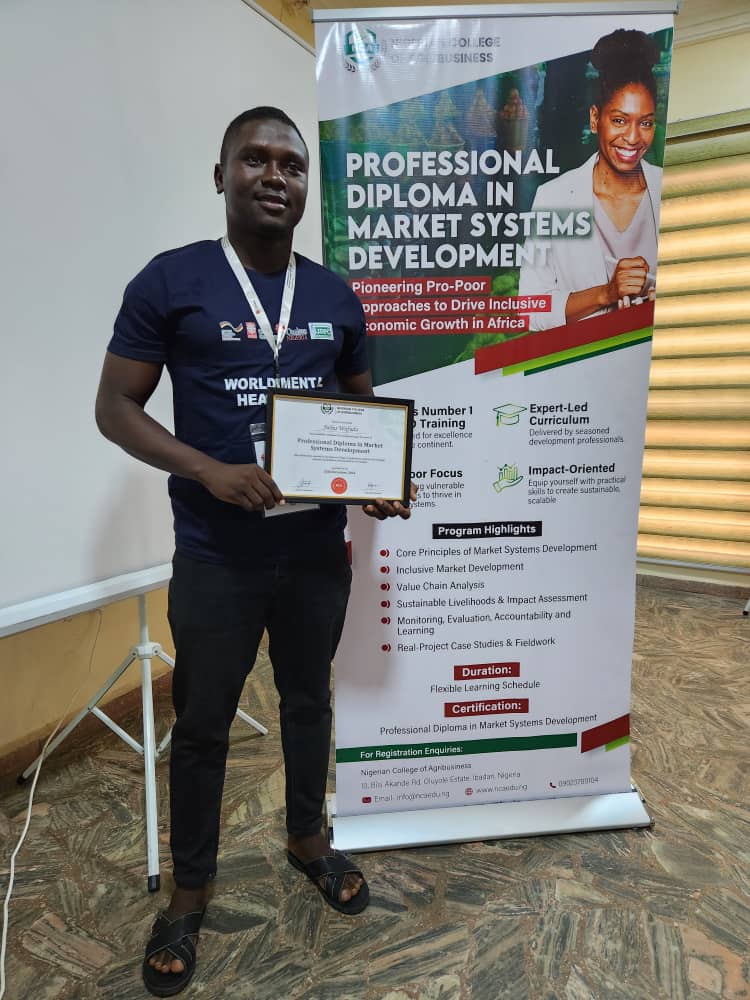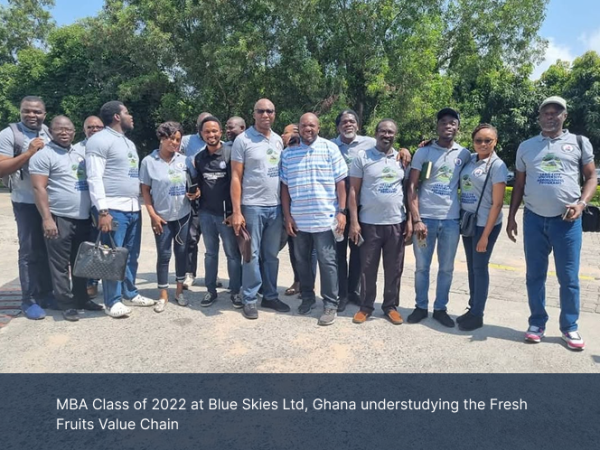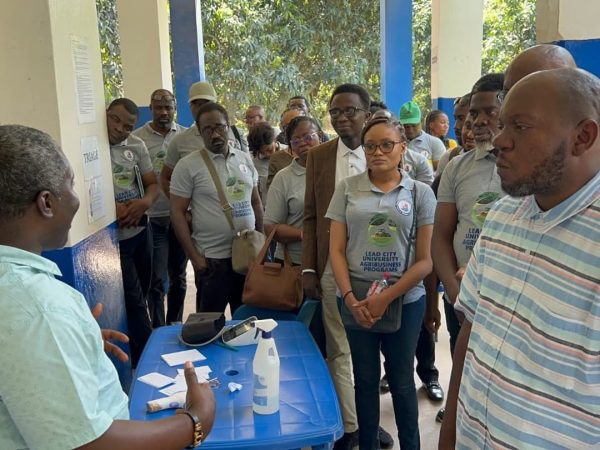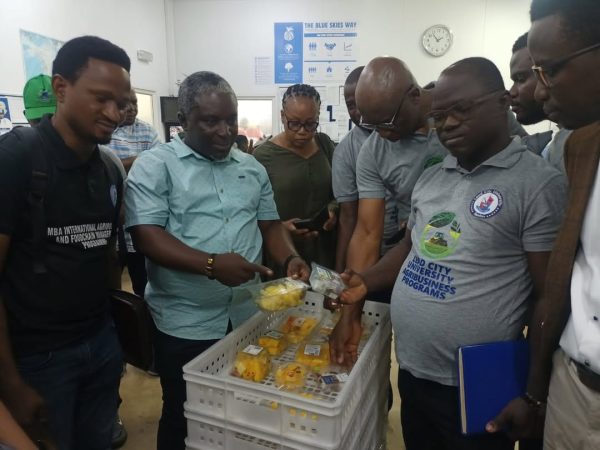
…..Africa’s leading Postgraduate Qualification for Agrifood Professionals

Global trade is entering a new era shaped by the African Continental Free Trade Area and other international frameworks that are transforming the way businesses operate. For Africa, AfCFTA represents a historic opportunity to unlock the continent’s economic potential, integrate markets, and expand access to regional and global value chains. At the same time, new technologies, changing consumer patterns, and evolving regulatory landscapes are redefining how trade is conducted and managed across borders.
The MBA in Multinational Trade Management is designed to prepare professionals who can thrive in this complex environment. The program equips participants with the knowledge and skills to interpret and leverage trade agreements, manage cross border supply chains, engage with customs and legal systems, and design strategies that deliver competitiveness and growth. With a strong focus on sustainability, participants will also learn how to align business performance with environmental, social, and governance priorities that increasingly shape international commerce.
Participants will gain exposure to the tools and insights required to navigate global markets with confidence. The curriculum integrates AfCFTA as a central framework and extends to other global agreements and trade systems. It highlights the role of digital commerce, traceability technologies, and trade finance innovations in creating efficient, transparent, and resilient trade operations.
The MBA in Multinational Trade Management positions graduates as modern trade leaders. It prepares professionals who can manage the complexity of multinational commerce, influence trade policy, and create enterprise strategies that connect Africa’s potential with global opportunity.

As AfCFTA and global frameworks reshape commerce, this program prepares professionals not only to participate in trade but to shape the future of multinational business from an African perspective.
Our program covers a wide spectrum of food products, ensuring that students are well-versed in the processing and post-harvest management of fruits, vegetables, grains, meats, dairy, seafood, and other commodities. This comprehensive approach equips graduates to excel in various sectors of the food industry.
A dedicated module on food quality control, standards, and certifications equips students with the expertise to maintain and ensure the highest standards of food quality and safety. Graduates will understand the importance of adhering to regulatory standards and certifications in the food industry.
Graduates will be well-prepared to identify market trends, assess consumer preferences, and make informed decisions to maximize economic returns in the food processing and post-harvest sector.
This module will provide a comprehensive foundation in the principles and realities of international trade. Participants will study classical and modern trade theories, global trade flows, and the roles of institutions such as the WTO, UNCTAD, and regional blocs. By engaging with contemporary trade debates and case studies, participants will gain a deep understanding of how Africa is positioned within global trade dynamics and how multinational trade strategy is shaped by geopolitical and economic shifts.
This module will equip participants with practical expertise in navigating the African Continental Free Trade Area, the largest free trade project in the world. It will cover AfCFTA protocols on goods, services, and investment, tariff schedules, rules of origin, and dispute mechanisms. Participants will analyze how AfCFTA interacts with existing regional blocs such as ECOWAS, COMESA, and SADC, and how businesses can unlock growth opportunities through Africa’s expanding single market. The module will position candidates as professionals ready to lead trade across the continent.
This module will train participants in strategic thinking for cross border enterprises. It will focus on how businesses identify, evaluate, and pursue opportunities across multiple jurisdictions while managing risks and sustaining competitiveness. Topics will include global market entry strategies, partnership and joint venture models, competitive positioning, and how multinational firms align their trade strategies with sustainability and governance priorities. Participants will leave with practical tools to craft strategies that enable businesses to thrive in Africa and compete globally.
This module will explore the backbone of multinational trade: efficient and resilient supply chains. Participants will learn how to design and manage logistics networks that cross borders, ports, and regulatory systems. Key areas include port management, customs operations, multimodal transport, warehousing, inventory systems, and trade risk management. Case studies from Africa and global trade hubs will illustrate innovations such as trade corridors, special economic zones, and digital supply chain platforms that are revolutionizing global trade flows.
This module will introduce participants to the financial systems and instruments that power global commerce. It will cover the use of letters of credit, guarantees, trade credit insurance, export credit agencies, and structured trade finance. Participants will also explore the rise of blended finance, fintech-driven trade solutions, and investment promotion mechanisms in Africa. The module will prepare candidates to secure, manage, and optimize finance for multinational trade operations while ensuring compliance with global banking and risk standards.
This module will immerse participants in the practical aspects of export management. It will cover export planning, documentation, customs clearance, international quality standards, and trade facilitation reforms led by the WTO and AfCFTA. Participants will learn how to reduce bottlenecks, comply with cross border requirements, and design efficient export operations. The module will emphasize Africa’s export competitiveness in key commodities, manufactured goods, and emerging service sectors, preparing graduates to manage end-to-end trade processes with professionalism and efficiency.
This module will highlight the digital innovations reshaping global commerce. Participants will examine the rise of e-commerce platforms, digital payments, blockchain-enabled trade traceability, and AI-driven trade analytics. The module will demonstrate how digitalization is reducing transaction costs, increasing transparency, and opening new market access opportunities for African businesses. Graduates will be equipped to design and manage trade operations that leverage digital platforms to drive performance and competitiveness in multinational contexts.
This module will provide a strong grounding in the legal and policy frameworks that govern multinational trade. Participants will engage with WTO rules, bilateral and multilateral trade agreements, dispute settlement systems, intellectual property protections, and investment treaties. The module will also cover Africa’s trade policy landscape and the governance challenges of implementing agreements across diverse states. By the end, participants will have the legal literacy and policy insight needed to manage compliance, shape advocacy, and influence trade outcomes.
This module will focus on the people side of global trade. It will prepare participants to manage multicultural teams, navigate cross border labour regulations, and design talent strategies for trade-intensive organizations. Areas covered will include international HR strategy, cross cultural leadership, training and capacity building, and managing workforce performance in dynamic and competitive environments. By grounding HRM within the multinational trade context, this module ensures graduates are ready to lead people effectively across borders and sectors.
The international study tour is a defining feature of this MBA, giving students firsthand exposure to Africa’s evolving trade environment under the African Continental Free Trade Area. Over the course of one immersive week in a selected African country, participants will understudy trade dynamics within AfCFTA, engage directly with trade institutions, visit ports, customs hubs, free trade zones, and regional markets, and explore real opportunities emerging from Africa’s single market integration.
Through executive sessions with trade leaders, policymakers, and multinational enterprises, participants will gain critical insights into how businesses are positioning themselves within continental and global trade frameworks. The tour provides a rare opportunity to observe how agreements are translated into practice, how logistics and supply chains are managed across borders, and how digital platforms are driving new efficiencies in commerce.
This experience deepens students’ understanding of the complexities and opportunities of multinational trade in Africa. It challenges them to think strategically, broadens their perspectives on continental competitiveness, and prepares them to become global trade leaders who can navigate policy, markets, and innovation with confidence.



Candidates seeking admission into the MBA in Multinational Trade Management must hold a BSc or HND from a recognized institution, with a minimum of Second-Class Lower Division or its equivalent.
The program is designed for motivated professionals with strong academic or industry backgrounds, demonstrated creativity, and the ability to think critically in solving multinational trade challenges.
Candidates seeking admission into the MBA in Development Management must hold a BSc or HND from a recognized institution, with a minimum of Second-Class Lower Division or its equivalent.
The program is designed for motivated professionals with strong academic or industry backgrounds, demonstrated creativity, and the ability to think critically in solving complex development challenges.
Admissions into the MBA in Multinational Trade Management are open for the September and March cohorts each year.
All applicants undergo a screening and selection process. Due to limited class sizes and high application volume, early application is strongly recommended to secure a place in the upcoming cohort.
Application Fee: ₦25,000.
Tuition Fee: ₦N1.4m
Blended
Get monthly marketing tips and exclusive discounts straight to your inbox

Our mission is to cultivate a vibrant, sustainable and profitable agribusiness sector that drives economic growth and social progress across Africa and beyond.
We are committed towards educating a new generation of agribusiness sector leaders that will transform the economic fortunes of the African continent
© NCAEDU 2023 All Rights Reserved.